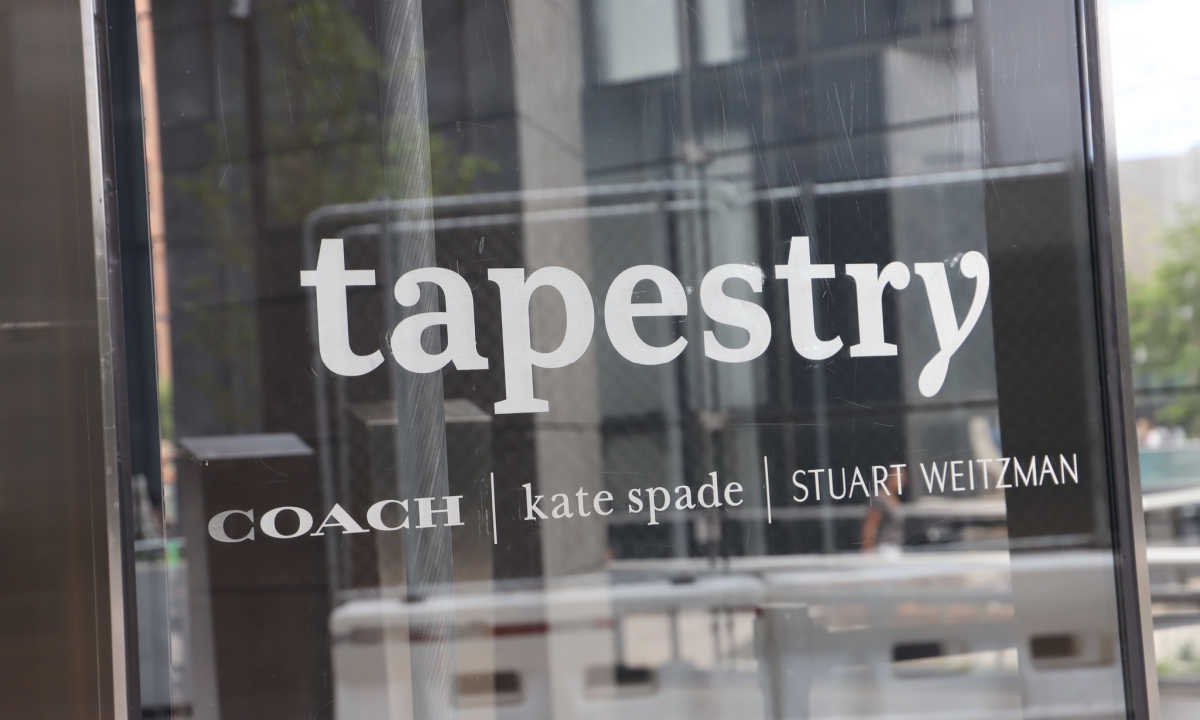
American luxury fashion has taken an unprecedented turn forward as Tapestry, owner of Coach and Kate Spade, agrees to acquire Capri Holdings, the parent company of both Michael Kors and Versace.
The deal between two major US fashion conglomerates is intended to create a collective powerful enough to compete with the likes of European luxury giants like LVMH Moët Hennessy Louis Vuitton, owner of Gucci and Saint Laurent, and Kering. This momentous decision will bring together iconic brands like Coach, Kate Spade and Stuart Weitzman, along with Versace, Jimmy Choo and Michael Kors, resulting in a combined $12 billion in revenue. Post-acquisition, the two companies will operate jointly under the name Tapestry.
“It represents a very compelling financial opportunity. We’re finding with this combination an opportunity to deepen our engagement with luxury customers on the high end,” shared Joanne Crevoiserat, chief executive of Tapestry. The deal also offers an opportune moment to increase direct-to-consumer businesses and save $200 million in operating and supply-chain costs within three years.
In addition to these financial advantages, the union will further strengthen the reach of both Tapestry and Capri, specifically in the European, Middle Eastern and African markets. Meanwhile, Capri’s individual brands display the potential to expand in Asia.
Read more: Antitrust Class Action Against Luxury Designers Is Dismissed
As a result of the acquisition, luxury fashion analysts recognize a budding opportunity for Tapestry, as it adds more clout to their status in the competitive luxury market.
“Synergies are always easier said than done, so this will clearly bear monitoring,” Simeon Siegel, retail analyst at BMO Capital Markets, noted. “But if there were ever two companies to enjoy synergies, Tapestry and Capri align.”
John D. Idol, chief executive of Capri, believes that the collaboration will aid the growth of these international businesses, explaining, “By joining with Tapestry, we will have greater resources and capabilities to accelerate the expansion of our global reach while preserving the unique DNA of our brands.”
Craig Johnson, president of Customer Growth Partners, also echoes this sentiment. “Tapestry has long eyed becoming a bona fide ‘house of luxury’ similar to Kering and LVMH,” he shared. “But its current brands are near-luxe rather than true luxe. Capri gives Tapestry a toehold in the true luxe world, which even though Kors is by far Capri’s largest brand, over time Versace may well be the real ‘jewel in the crown.’”
The potential deal between Tapestry and Capri is reflective of the current state of luxury and consumer spending habits in the U.S. With this newest agreement, the fashion landscape is sure to experience a transformation, and just how much of an impact this new combination will have remains to be seen.
Source: NY Times
Featured News
Big Tech Braces for Potential Changes Under a Second Trump Presidency
Nov 6, 2024 by
CPI
Trump’s Potential Shift in US Antitrust Policy Raises Questions for Big Tech and Mergers
Nov 6, 2024 by
CPI
EU Set to Fine Apple in First Major Enforcement of Digital Markets Act
Nov 5, 2024 by
CPI
Six Indicted in Federal Bid-Rigging Schemes Involving Government IT Contracts
Nov 5, 2024 by
CPI
Ireland Secures First €3 Billion Apple Tax Payment, Boosting Exchequer Funds
Nov 5, 2024 by
CPI
Antitrust Mix by CPI
Antitrust Chronicle® – Remedies Revisited
Oct 30, 2024 by
CPI
Fixing the Fix: Updating Policy on Merger Remedies
Oct 30, 2024 by
CPI
Methodology Matters: The 2017 FTC Remedies Study
Oct 30, 2024 by
CPI
U.S. v. AT&T: Five Lessons for Vertical Merger Enforcement
Oct 30, 2024 by
CPI
The Search for Antitrust Remedies in Tech Leads Beyond Antitrust
Oct 30, 2024 by
CPI